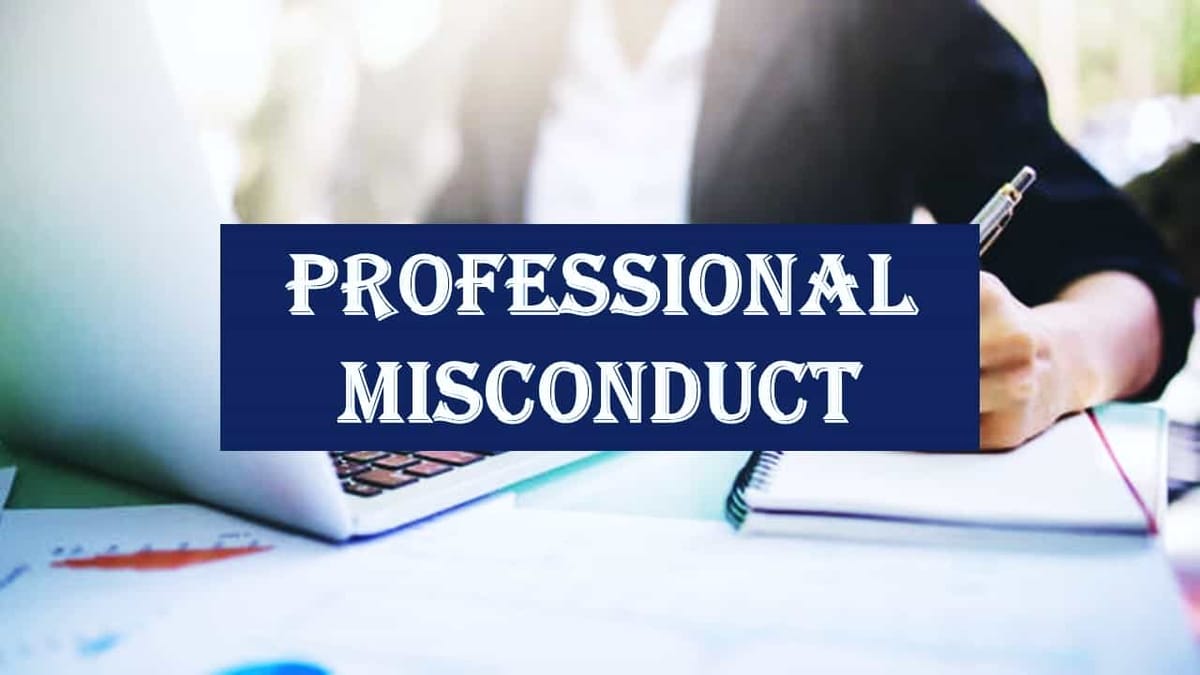Reetu | Dec 10, 2022 |

CA Found Guilty for not obtaining Debtors Confirmation
The Institute of Chartered Accountants of India (ICAI) has found Chartered Accountant Nitte Sudhir Shetty guilty of Professional Misconduct for verification of Debtors as per Books of Account and has not obtained any confirmation as he was auditor since long and hence relied upon the party.
The Committee noted the the Respondent was the Statutory Auditor for the period 2004-05 to 2005-06 of M/s Prominent Tours & Travels Pvt. Ltd. (hereinafter referred to as “PTTPL”). The Committee noted the Respondent was held Prima Facie Guilty of Professional Misconduct falling within the meaning of Item (7) of Part I of the Second Schedule to the Chartered Accountants Act, 1949 by the Director Discipline on the charge that he verified the debtors as per the books of account produced by the M/s PTTPL before him and had not obtained any confirmation as he was auditor since long and hence relied upon the party.
The Committee noted that the Respondent in his submissions seems to have taken the defence of Rule 12 which empowers the Respondent to express his difficulties in explaining his acts which happened more than seven years ago. The Committee noted that the complaint based on investigation started on 26th November 2010. The Committee noted that the Complainant had brought on record statement of the Respondent taken on 2nd September 2011. Thus, the Respondent was aware of the same and hence cannot take shed of Rule 12.
Committee noted that the Counsel of the Respondent submitted that the Respondent had sufficient appropriate audit evidence based upon which he was satisfied with the verification of the debtors.
Committee further observed that as per Para 3 of AAS 5 (Audit Evidence), the auditor should evaluate whether he has obtained sufficient appropriate audit evidence before he draws his conclusions therefrom. The audit evidence should, in total, enable the auditor to form an opinion on the financial information. ln forming such an opinion, the auditor may obtain audit evidence on a selective basis by way of judgmental or statistical ·sampling procedures. The Committee noted that no such procedure had been followed by the Respondent rather he merely relied on the client.
In the opinion of the Committee, while AAS 5 (Audit Evidence) lays down several methods of inquiry and confirmations. In the opinion of the Committee, the Respondent has not been able to bring out any reasoning/justification as to why no confirmations have been obtained in respect of Debtors.
In addition to this, the Committee also noted that as per AAS 5, an external confirmation represents audit evidences secured from the third party is more reliable than internal evidence. External confirmation needs to be secured to reduce the audit risk to an acceptable level. Notingly, no such external confirmation of balances had been secured by the Company and the Respondent as an auditor in the case of debtors.
Committee on considering the arguments of the Respondent’s side, formed the opinion that it was the responsibility of the auditor to design and perform audit procedures in such a way to enable to obtain sufficient audit evidence so that a reasonable opinion could have been formed for forming an audit opinion. These evidences were to be obtained by substantive procedures as per AAS 5 (Audit Evidence). These substantive procedures among others covered external confirmations. The Committee was convinced with the fact that the Respondent failed to collect evidences obtained from independent sources to reduce the audit risk.
Respondent had stated that they had verified the debtors as per the books of account produced by the M/s PTTPL before him and had not obtained any confirmation as he believed the party. The Committee noted that similar acceptance was also given by the Respondent before CBI on 2nd September 2011 in his recorded statement. In other words, the Respondent confirmed not having done any audit on test basis, collecting evidence supporting the it transactions with the debtors, etc which is in contradiction of statement provided by them in the Auditor Report. This is· a grave irregularity on the part of the Statutory Auditor(s) amounting to a professional misconduct. Such certification of financial statements and furnishing of auditor’s report induced the Bank to part with its funds in favour of Shri Kanakia and subsequently suffered huge losses.
Therefore, the Committee concluded that the Respondent did not exercise due diligence in the audit of the auditee company and did not plan the audit in such a way to apply additional substantive audit procedures where internal control of the auditee company in the case of a large number of party balances were not confirmed by the auditee company and hence hold him guilty of professional misconduct.
In view of the above findings stated, the Committee in its considered opinion hold the Respondent GUILTY of Professional Misconduct falling within the meaning of Item (7) of Part I of the Second Schedule to the Chartered Accountants Act, 1949.
To Read Official Order Download PDF Given Below:
In case of any Doubt regarding Membership you can mail us at [email protected]
Join Studycafe's WhatsApp Group or Telegram Channel for Latest Updates on Government Job, Sarkari Naukri, Private Jobs, Income Tax, GST, Companies Act, Judgements and CA, CS, ICWA, and MUCH MORE!"